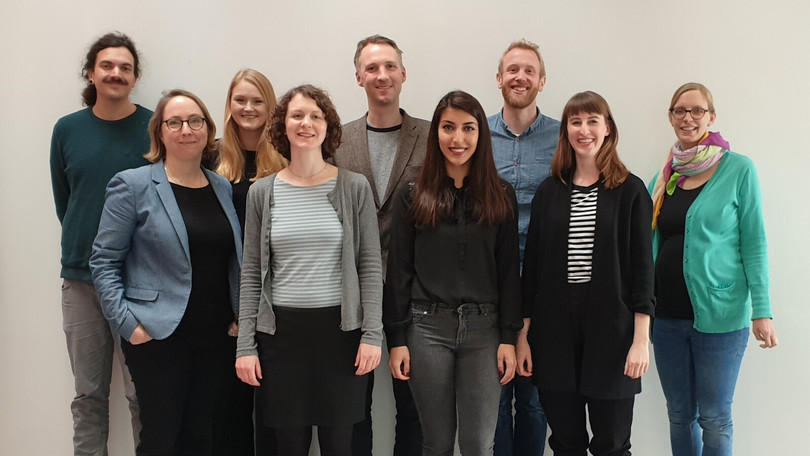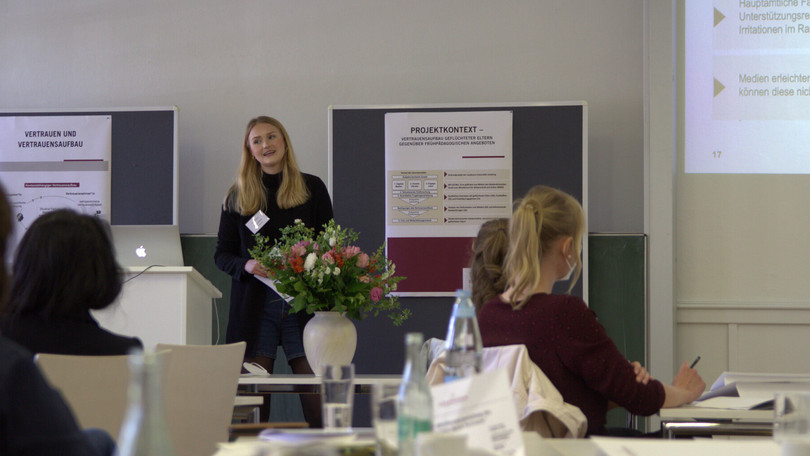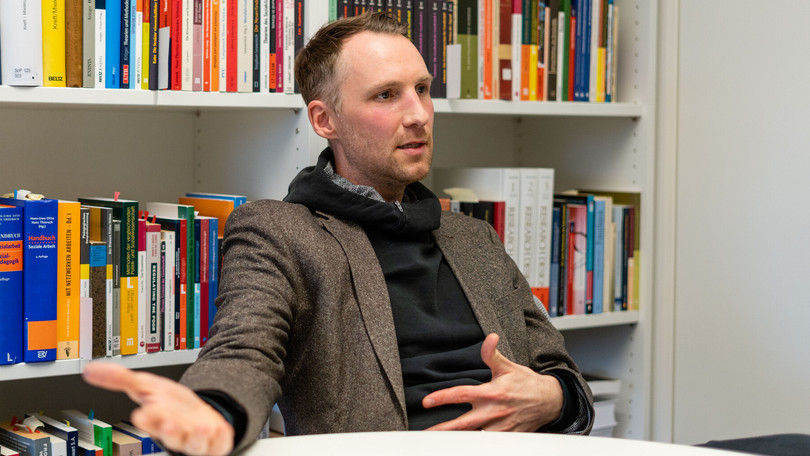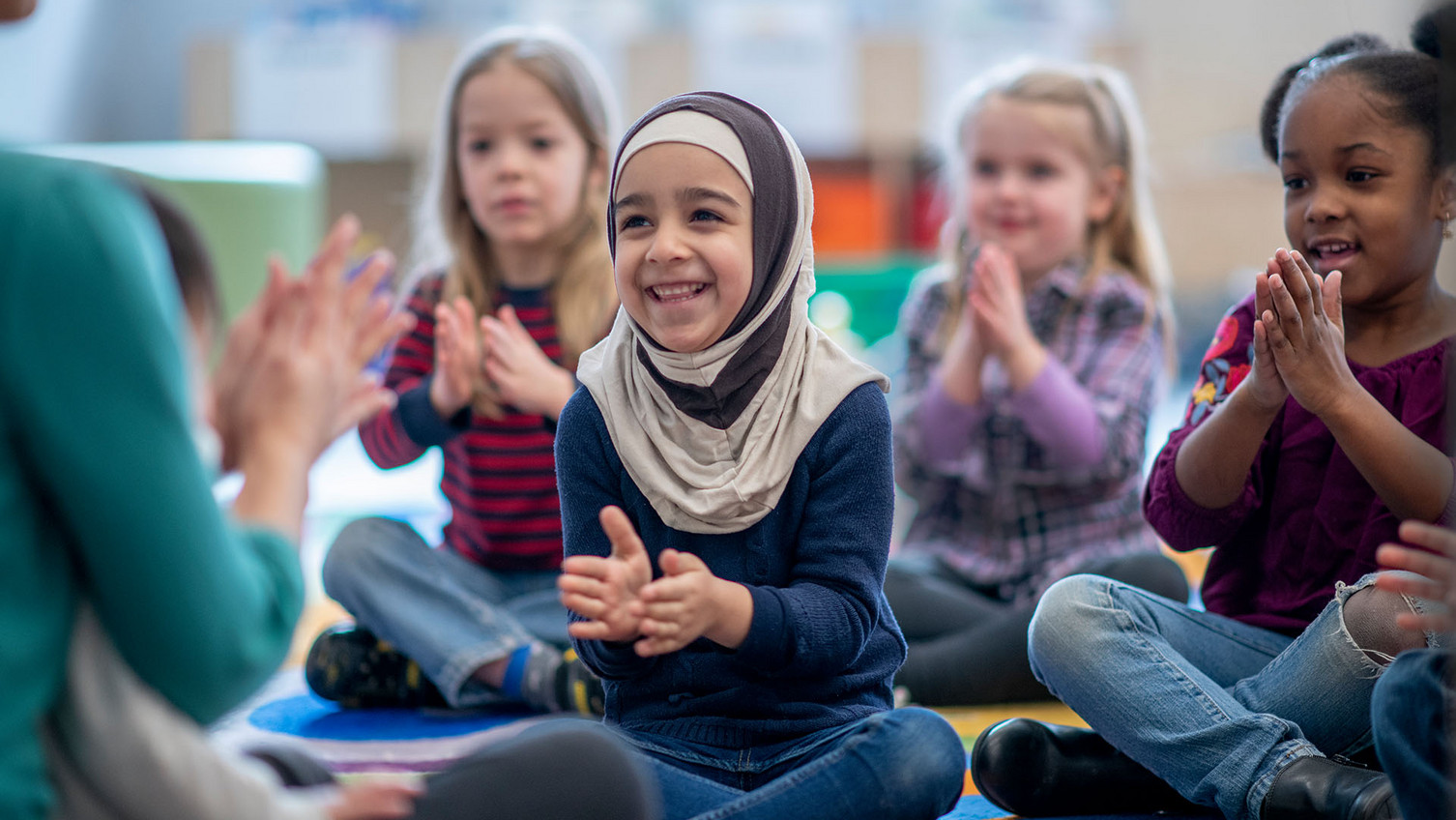"Are all children wet?" MWK research project: Integration through trust
2022-06-07 If someone told you in a language you barely understand, "There's a place like this where you can drop your child off five hours a day, five days a week". - would you do it? Spontaneously, many valid reasons come to mind not to do it. But under what circumstances would you accept the offer? Maybe if you have a "good feeling" about the facility and the people there - if you can trust them even though you can't know what to expect.
The project "Integration through trust. Conditions for building the trust of refugee parents with 0-6 year old children in early education services in Lower Saxony" traced how refugee parents gain trust in daycare centres, family education centres and other early education services. The project was funded with almost 800,000 euros over three and a half years by the Ministry of Science and Culture with funds from the Lower Saxony Advance Programme and was led by Philipp Sandermann, Professor of Social Pedagogy, Sybille Münch, at the time Junior Professor of Theory of Public Policy, Henrike Friedrichs-Liesenkötter, Junior Professor of Educational Sciences, and Onno Husen, PostDoc at the Sandermann Professorship, as part of a network. "Germany is a refugee migration society, in the last seven years 2.2 million people have fled here," explains Sandermann, "and a third of all people who apply for asylum are six years old and younger." The area of children and families, however, has been comparatively little researched so far. The team consisting of the project leaders and five doctoral students has now narrowed this research gap and proved with considerable empirical effort that trust plays a key role in the success of early education. The researchers used a multi-method approach: "We conducted a quantitative survey in which we reached a representative sample of refugee parents across Lower Saxony. At the same time, we used a variety of qualitative methods: Document and media analyses, participant observations, interviews with refugee parents, volunteers and professionals," says Sandermann. "Thematically, we again set priorities," adds Münch, "namely 'What role does digital media play in building trust?', 'What role do social services and 'volunteering' play and what practices between professionals and parents allow trust to develop."
Migration is not an exceptional phenomenon
The project showed, somewhat differently than is often assumed in everyday understanding, that trust can be established interactively, is very situational and varies depending on the context. It is not a character trait that people possess to a certain extent or not, and that would remain stable regardless of experience (like extroversion or a sense of responsibility). Trust is something that can be built up and strengthened, but also endangered and lost. During the three and a half years of the project, the collaborative project identified a whole series of "adjusting screws" that can strengthen trust: For example, by creating reliable, inclusive structures, communicating in several languages and using low-threshold social media (e.g. Whatsapp) for information and exchange. The main challenge is that the demand for childcare is high and the registration process is complex and full of hurdles. The fact that the existing structures are so precarious is due to the fact that decision-makers have assumed for years that migration in Germany is an exceptional phenomenon - one that will soon pass and therefore does not need to be equipped with financial, personnel or even construction resources.
Avoidable fears
"But the most tragic thing about the question," Münch interjects, "is that the quantitative surveys show that there is a very high level of trust in German society and institutions as a whole, but also precisely in early childhood education, and that it is then more often not so much a question of having to build trust, but also of keeping this trust." On a scale of 1 to 10, early childhood education services - across all nationalities - are rated at 8.5. However, a number of exclusionary processes erode trust: For example, there are kindergartens that advertise multilingualism, while their staff simply refuse to communicate with refugee parents in English. And successful communication encompasses even more: Münch and Sandermann argue that trust-building communication should be sensitive to routines that are taken for granted in Germany, but which require explanation in international comparison. This applies in particular to the understanding of education in German Kitas. "In one interview, a mother said something quite characteristic," Sandermann reports, "unsettled, she told us that she had picked up her child from the daycare centre and it was all dirty and muddy. The teacher told her that today was 'water well day'. For German parents, this needs no further explanation. On a project day, you offer the children a space to try things out and get to know the element 'water'. Outside of Germany, however, this is not a matter of course everywhere and parents quickly start to worry: 'Are all the children wet now or is it just my child because he or she didn't do something right?' These fears are largely avoidable with more education and communication." The same applies to the fear that one's own child will not learn enough at the daycare centre - refugee parents from some countries of origin are often familiar with a much more school-like childcare system and have correspondingly different expectations.
Volunteers compensate
As Münch emphasises, the fact that refugees are able to participate to a high degree in early childhood education is due to volunteers who keep access to German society open, shape it and moderate it. Even parents who have been in Germany for a long time and already speak good German are still dependent on the support of volunteers for a long time because of the great hurdles they face when going to the authorities or filling out incomprehensible bureaucratic forms. The boundaries between voluntary and professional work are often blurred: even after successful registration, it is often individual "confidants" who mediate through personal commitment beyond their actual working hours and thus compensate for structures that tend to be exclusionary. In some cases, this commitment is very long-lasting. "This is an expression of constraints," says Münch, "and only works because everyone does significantly more than they actually have to."
The most thorough way to gamble away people's advance trust is not to let them participate. Sandermann argues: "You ruin trust by not letting people participate, for example by saying that the system you have arrived at is the final system and nothing will change. Or if you tell refugee parents that they should learn and imitate, but that they are not allowed to contribute anything of their own. Parents then say, and we can also show this empirically, 'ok, then this is obviously not a society for me'. Yet there is actually a high basic willingness to identify with German society, to help shape it and to participate in it. The desire for participation is very high."
The results of the research project are incorporated into a "train the trainer" programme. Confidence-building measures are practised in workshops with trainers and integrated into existing early childhood education formats. For their continuation, cooperation agreements were concluded with two training providers in Lower Saxony.
 ©Philipp Sandermann
©Philipp Sandermann
 ©Philipp Sandermann
©Philipp Sandermann
 ©Philipp Sandermann
©Philipp Sandermann

